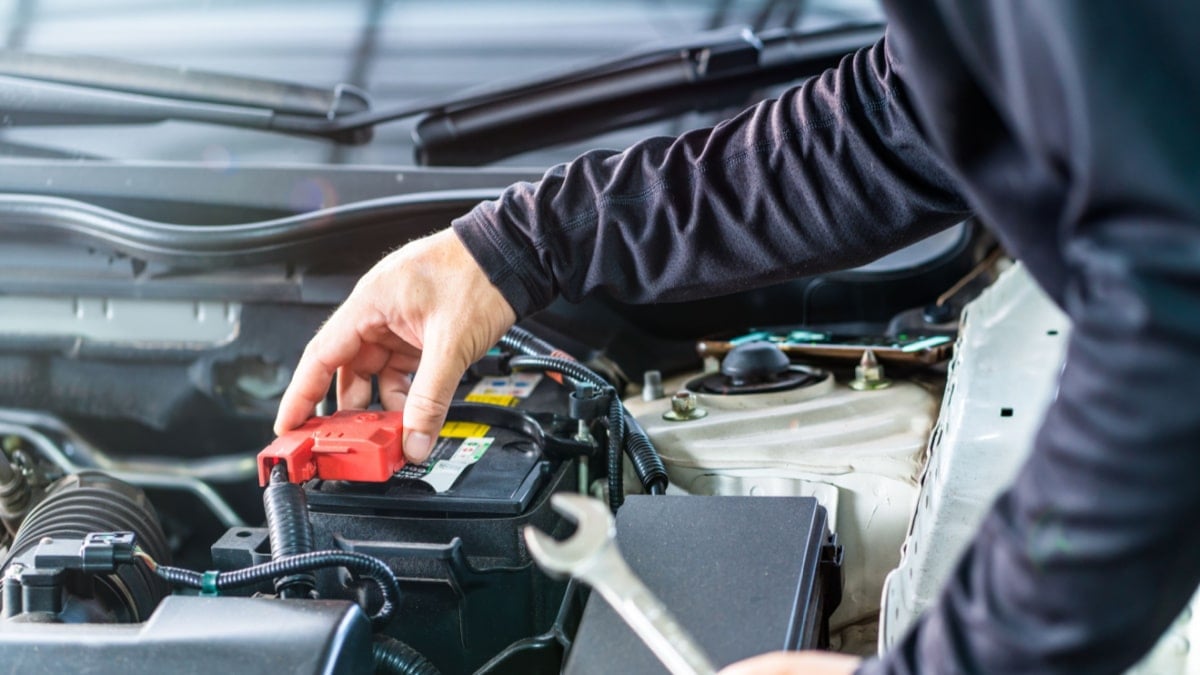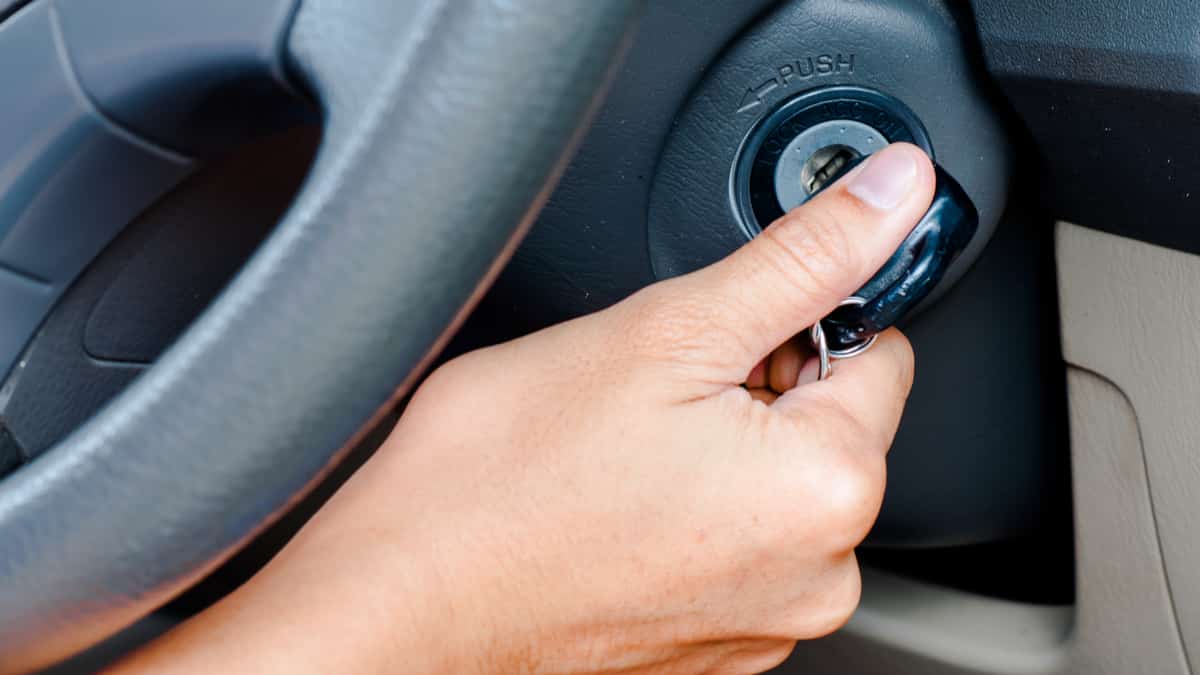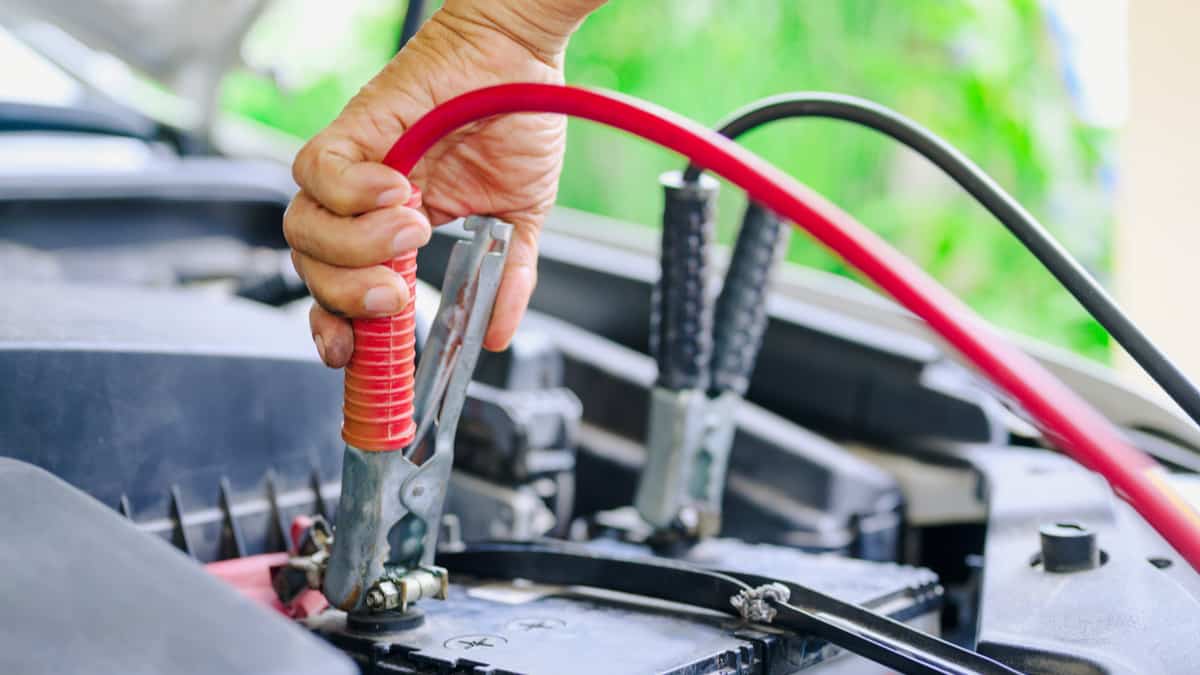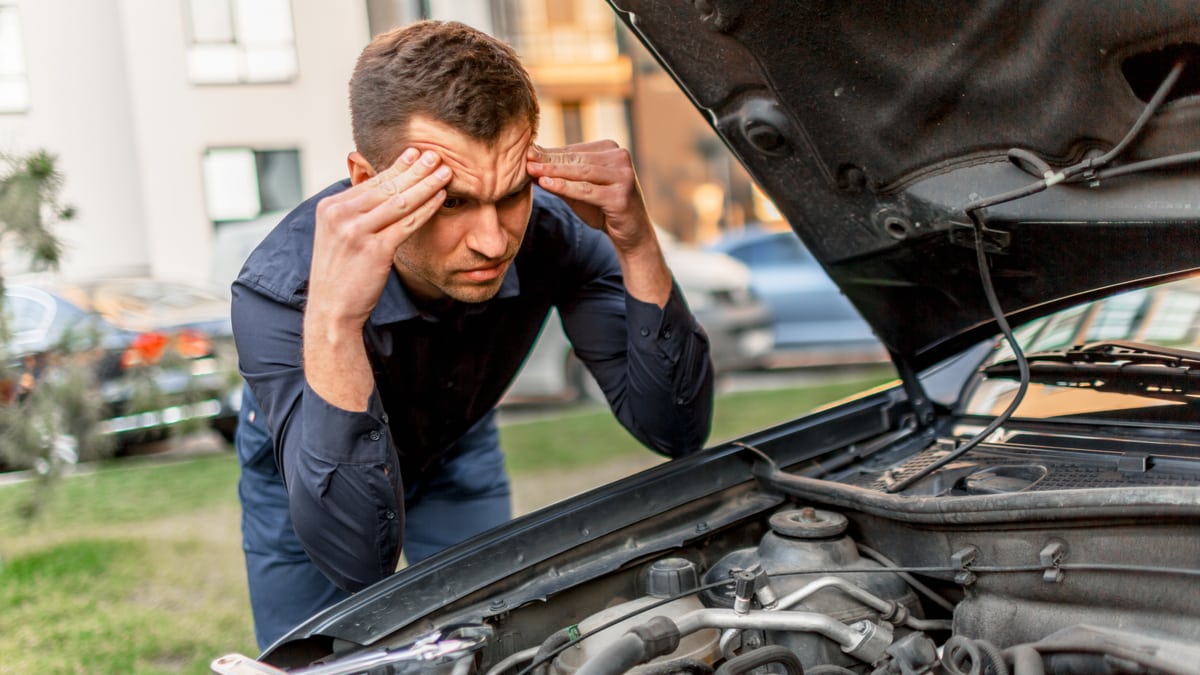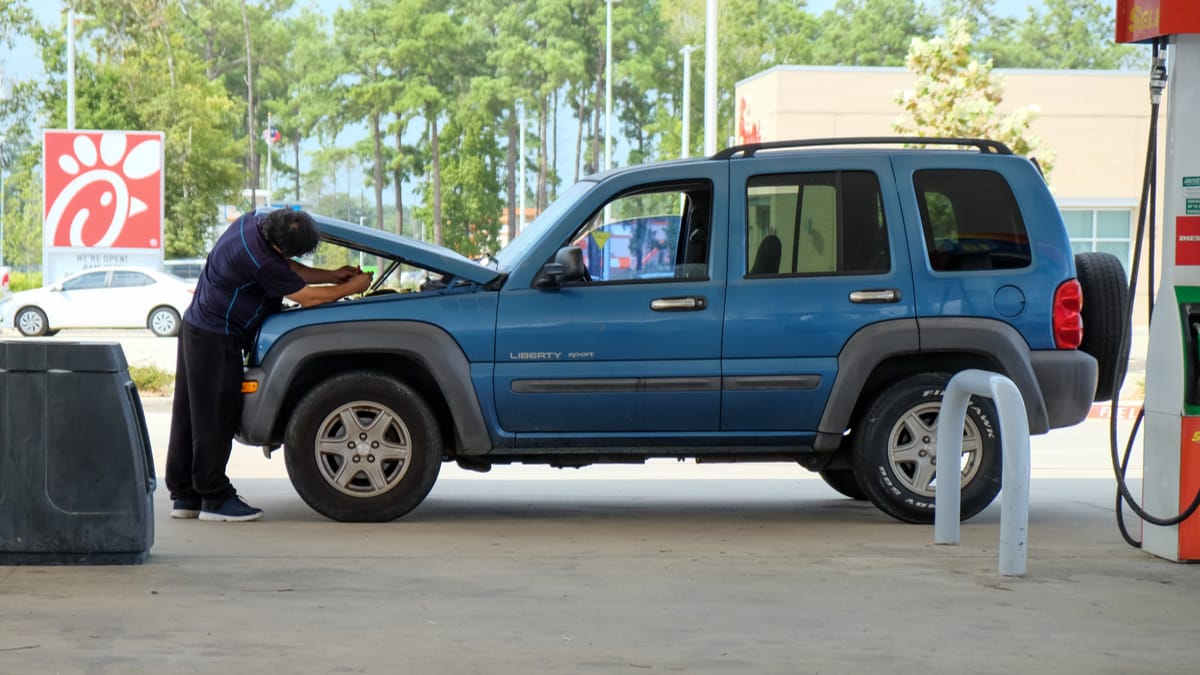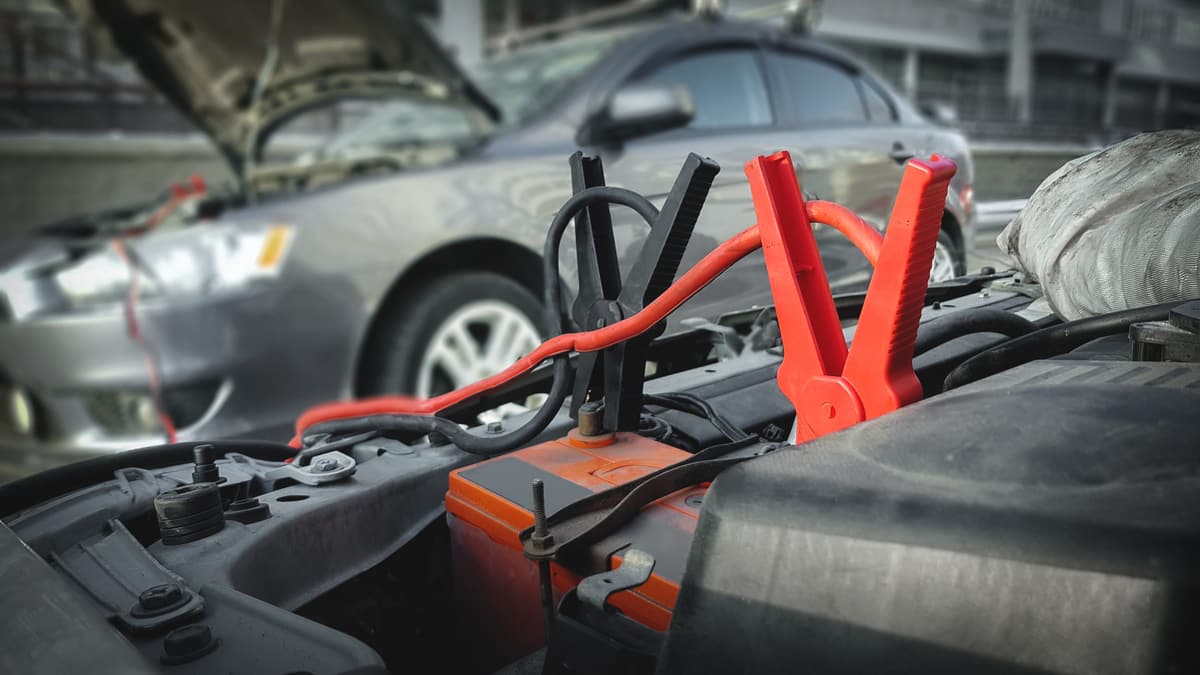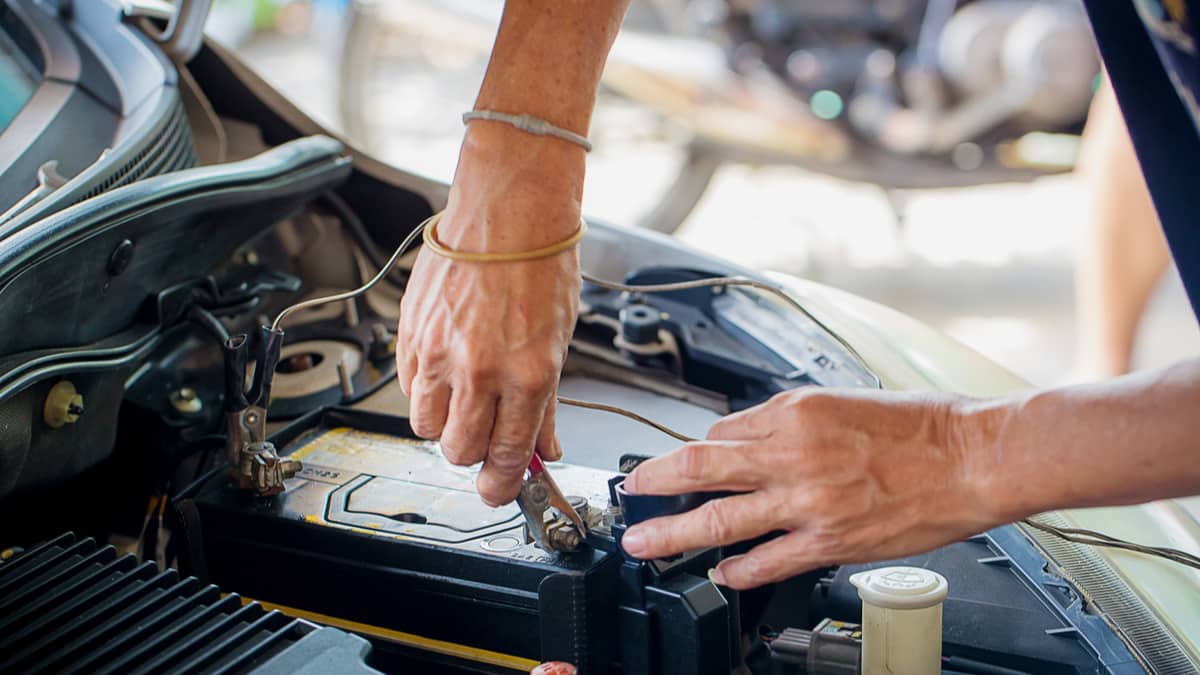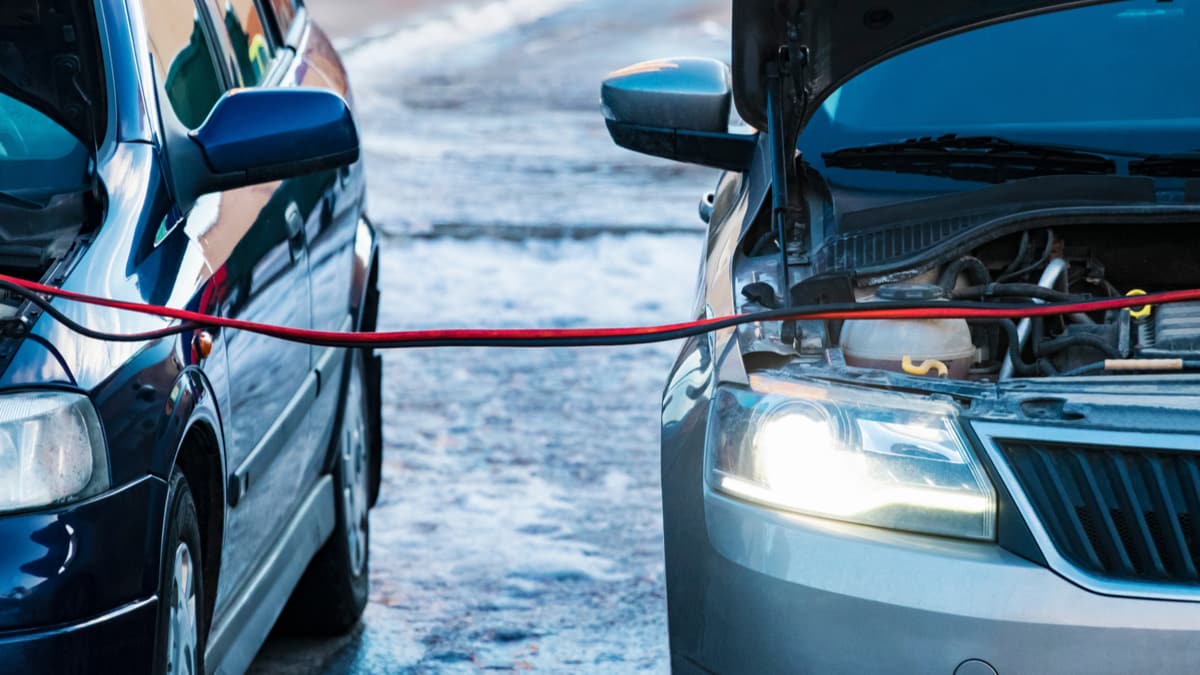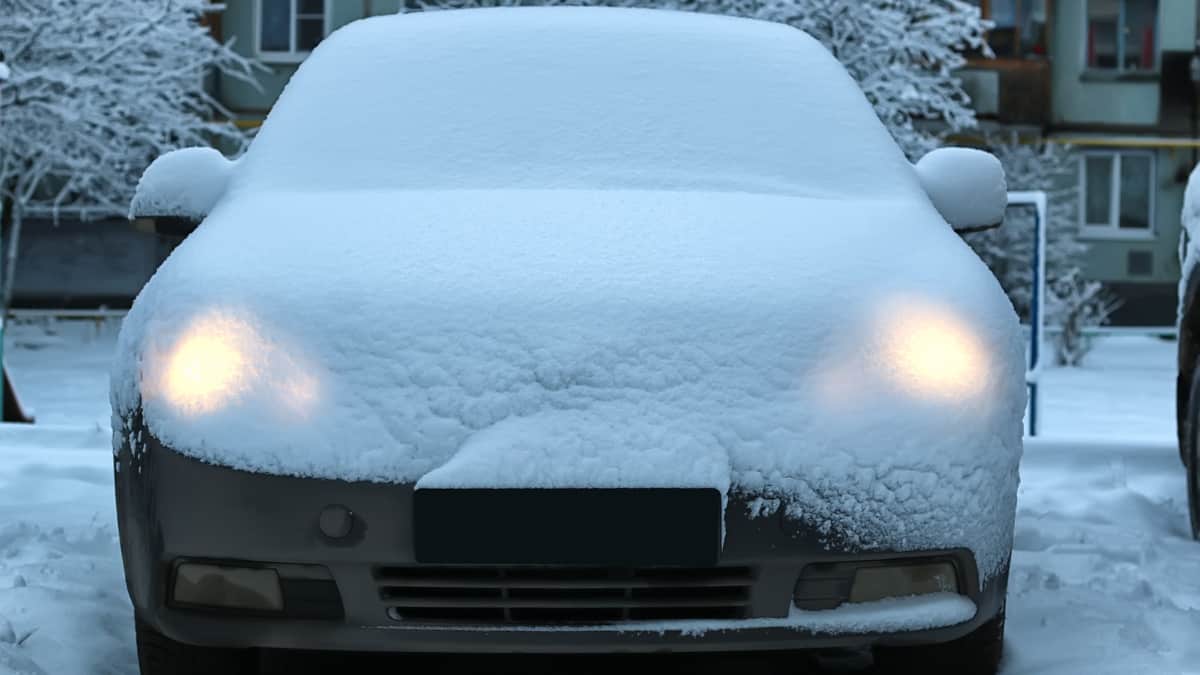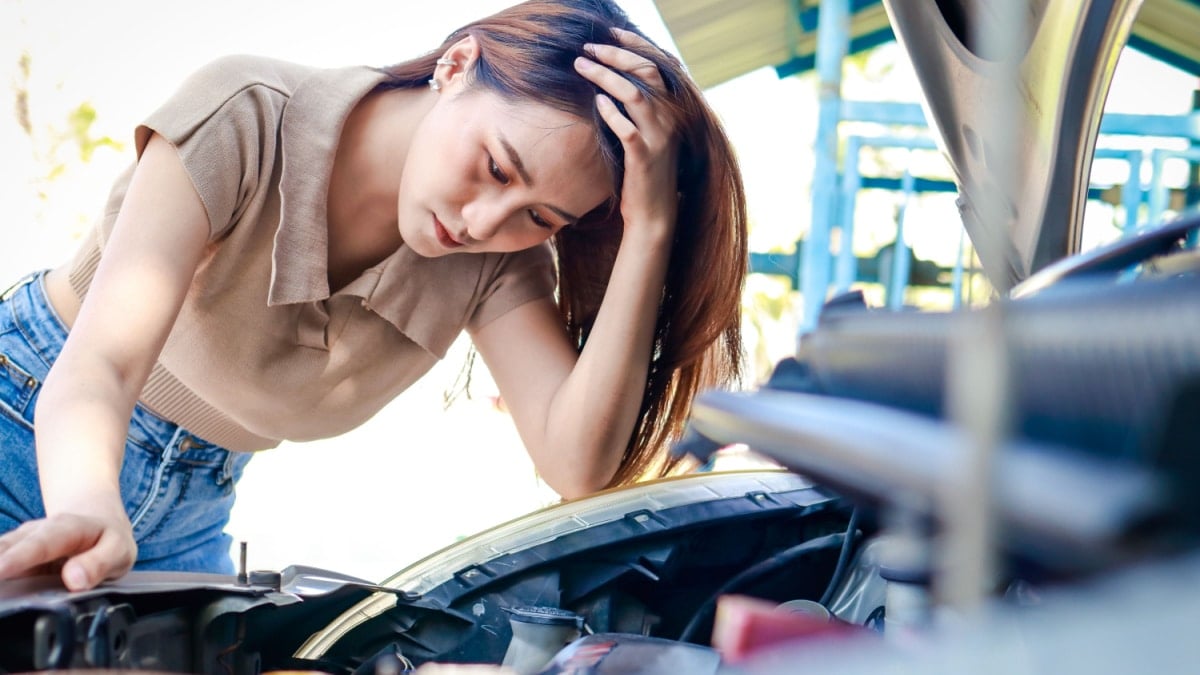We all take for granted that our cars will start first thing in the morning. When you go out to your car and find out that it struggles to start, you realize that something isn’t quite right. When the car hesitates to start, it indicates a problem, but what is causing it, and how can you fix it quickly?
In this guide, I evaluate all of the possibilities, even though some are more probable than others. I will also show you how to resolve each condition.
What Could Be Wrong If My Car Hesitates To Start?
The most common reasons a car hesitates to start include fuel supply issues, bad engine sensors, and ignition problems such as bad spark plugs or ignition coils. A bad starter motor or low battery voltage can also be the problem.
There are many different parts that can make your car engine hesitate to start, and therefore it is important to start looking for the problem correctly. Most modern cars use advanced computers that monitor every sensor in your car.
If a sensor fails, it will store a trouble code. Therefore, it’s important to read the OBD trouble codes with a code scanner before you start replacing any parts or doing any further diagnosis.
However, here are some things that may make your car hesitate to start:
1. Fuel Delivery Issues
Air and fuel are needed for the car to run, and enough fuel must also reach the engine to get a proper start. If there is a problem with the fuel system, it can prevent the right amount of fuel from getting to where it belongs.
There are many parts in the fuel system but if your diagnosis has led to the fuel system, you must determine what part has failed and replace it. You could be looking at issues with a clogged fuel filter, fuel injectors, or a malfunctioning fuel pump causing a low fuel pressure.
During the start-up moment, the engine needs to inject much more fuel into the cylinders than when it is running, and therefore, low fuel pressure can cause this problem.
2. Bad engine sensor
A bad engine sensor can cause the engine control module to inject too much or too little fuel into the engine during the start-up moment, which results in a rich or lean air-fuel mixture. There are many sensors in your car, so it is important to check the error codes first as discussed earlier.
If your car hesitates to start when the engine is warm or cold, that’s a strong symptom you could be facing a bad engine coolant temperature sensor. The MAF sensor or a bad camshaft position sensor could also cause starting issues.
3. Bad Battery/Connection
The car battery provides the voltage needed to crank the engine over and get it started. As the battery starts to fail, it can’t provide enough voltage to get the engine cranked over right away. Instead, it might take some time. The older the battery becomes, the fewer cranking amps it can provide. This is most prevalent when the temperatures get colder.
If the battery is in good condition, your issue could be related to the connection. If there’s any corrosion on the battery cables or posts, the battery won’t be able to transmit the power needed when starting the vehicle.
You should do a visual inspection of the battery connections to ensure everything is clear. If you need to clean it off, you can use baking soda and water. You also want to check the health of the battery periodically. You can take it to most auto parts stores for a free check. As soon as the battery starts to die, replace it so you aren’t left stranded.
4. Fouled Spark Plugs or Ignition Coils
Aside from the charging and electrical side of starting a car, you also have the ignition system to contend with. As spark plugs start to fail, they can make it harder to get the engine running. As the plugs get older, you might also notice some performance issues, such as a rough idle or a misfire.
If you are changing the spark plugs at recommended intervals, this shouldn’t be an issue. However, if you haven’t changed the plugs and the engine is getting hard to start, it doesn’t hurt to pull them and take a look. They might need to be replaced.
The ignition coils send power to the spark plugs, and if the ignition coils are going bad, it could cause a weak spark.
5. Poor Fuel Quality
Not many people think about the type of fuel that’s going into the car. In fact, you might be trying to find the least expensive option without caring what it could do to the engine. However, poor fuel quality leads to clogged injectors, failing spark plugs and a whole host of other issues.
If you think you’ve put bad fuel in, you can try an additive to get the car running. After that, be sure to only fill up at places with top-tier fuel for better protection.
6. Malfunctioning Starter
As the starter motor begins to wear, the vehicle might be slower to turn over. Once the key is turned, an electromagnet activates, forcing the starter gear to engage. This action causes the starter to turn the flywheel fast enough until the engine can take it over. If it’s not able to spin fast enough, the car is going to struggle to start.
The best way to check the starter is to have it bench tested. If you don’t know how to do this, most auto parts stores will do it for free.
7. Clogged Air Filter
The engine needs the right amount of air and fuel to get started. If the air filter has become clogged, one part of the equation isn’t making it to the combustion chamber, possibly causing some hesitation.
You can easily check the air filter in most cars. Plus, it’s not expensive to put a new one in. Follow the recommended maintenance schedule to ensure this vital component is never clogged.
8. Failing Alternator
As the alternator fails, it can also cause trouble starting the car. The alternator needs to charge the battery while the vehicle is running, but if it doesn’t, you might not have the cranking power you need. Many people don’t realize the alternator is bad until they replace a battery and find out that wasn’t the issue.
You can have the alternator tested at your local auto parts store as well. Otherwise, you can test it yourself. With a multimeter, test the battery voltage with the car engine off. Test it again with the battery running. The number should be higher with the engine running.
Vehicle Hesitates to Start When Cold
If the car is only having trouble getting started when cold, it could be due to the battery struggling to supply the cold cranking amperage that’s needed. As you choose a battery, you will find two separate amperage ratings. The first one to look at is the cranking amps, while the second is cold cranking amperage (CCA).
When temperatures are mild, the battery can supply the full amount of cranking amperage without a problem. It’s when the temperatures drop that problems start to occur. The CCA rating shows how many amps the battery provides to the car starter for thirty seconds at 0°F. For this reason, the CCA rating will always be lower than the typical cranking amperage.
While most cars are designed to start up with the amount of CCA listed on the battery, there are problems as it gets older. Once the battery begins aging, the CCA starts to decline. You might not notice the problem in the summer months because the CCA isn’t needed. That’s why it’s important to check the health of your car battery before winter sets in. By knowing that it is struggling ahead of time, you can prevent getting stuck with a car engine that won’t start.
If your car hesitates when you try to start it, there are a few potential causes of this. It could be something as simple as dirty spark plugs or a clogged air filter. However, it can also be a sign of a more serious problem, such as a broken alternator or starter motor.
If you are unsure what the cause is, take your car to a mechanic and have them diagnose the problem. With their help, you can get your car back on the road in no time. If you want to try it yourself, you can also check through our other similar articles about the issue down below.
Other related issues:
- Car Won’t Start?
- Car Won’t Start But The Radio And Lights Work
- Car Engine Cranks But Won’t Start?
- Car Won’t Start After Getting Gas
- Car Won’t Start After Replacing Battery
Tags: Starting Issues
Categories: Engine, Troubleshooting

